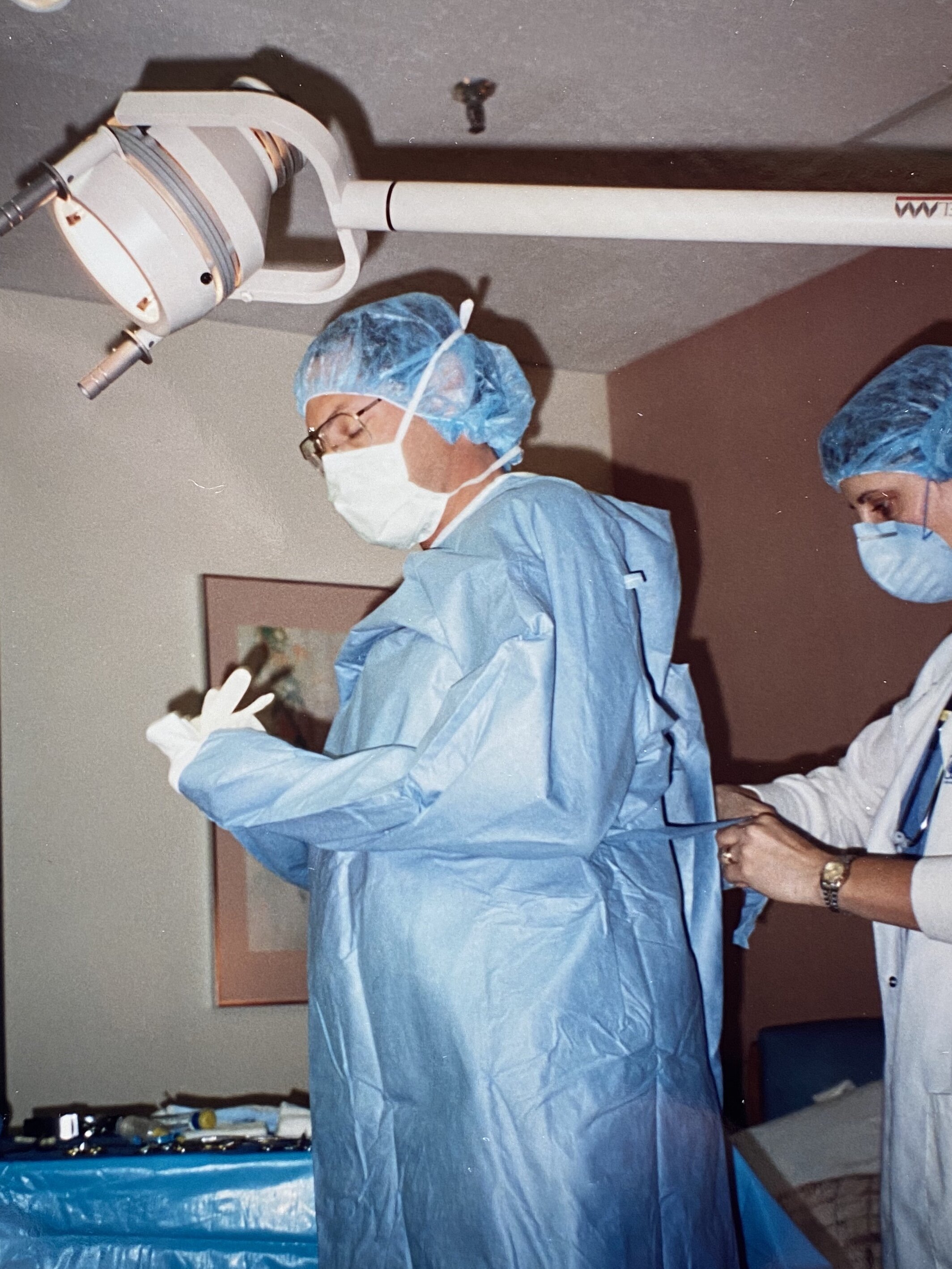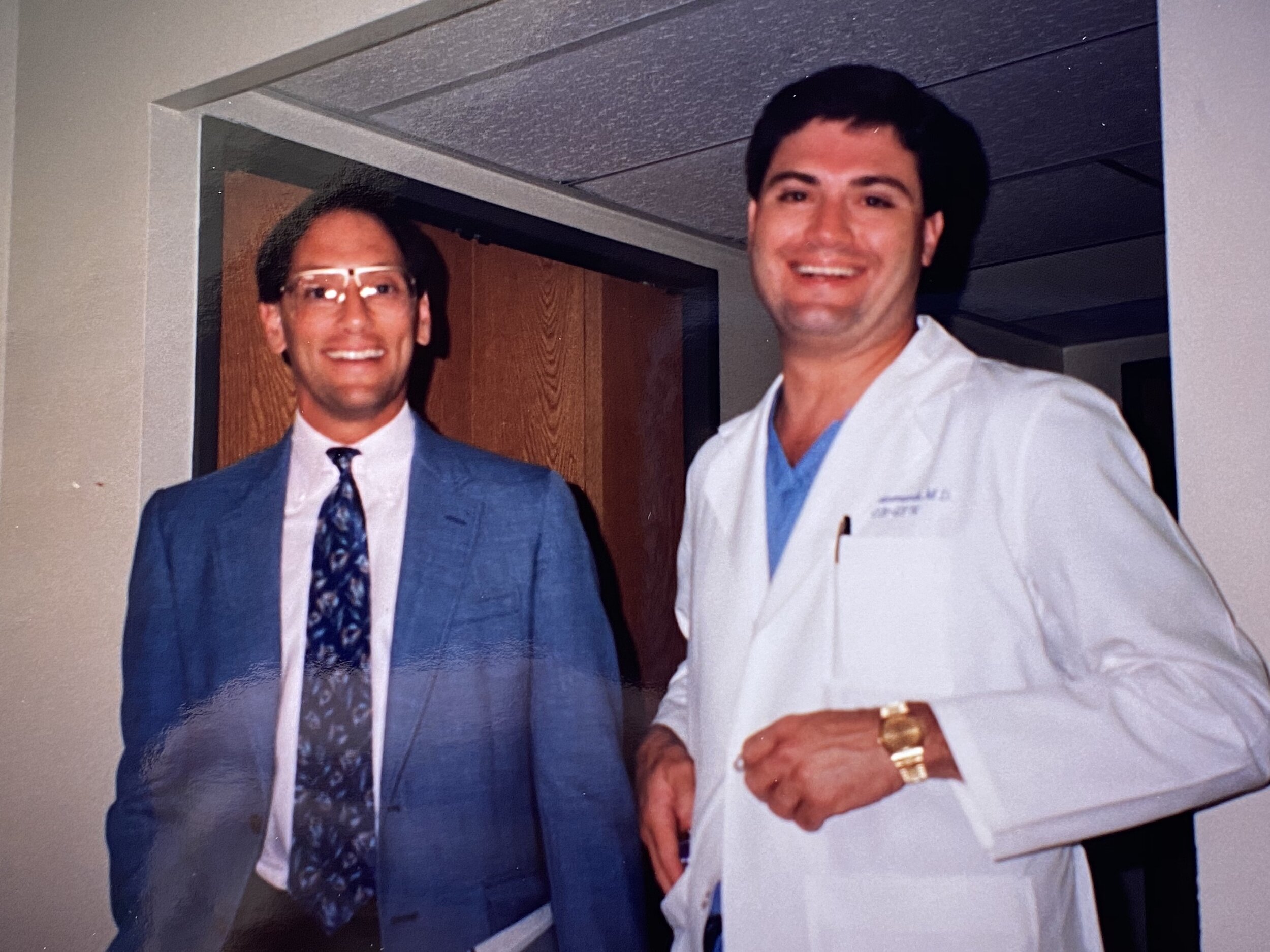Interview by Jan Osborn . Photos courtesy of Health Central Women’s Care and Jan Osborn.
Dr. Jay Staub has been delivering babies and caring for women’s health in Dallas for the past 37 years. When not joking around, Dr. Staub has a serious and caring demeanor with his patients, making sure patients receive outstanding care at the practice. Dr. Staub practices at Health Central Women’s Care at the Margot Perot Center at Presbyterian Hospital of Dallas. We asked Dr. Staub some questions regarding COVID-19 and how to best support the medical community.

A. Jay Staub, M.D. – Board Certified in Obstetrics & Gynecology
How has your own experience in the medical field helped you during an uncertain time in our culture?
As an ob-gyn physician, I continue to participate in regularly scheduled drills and simulations with the nursing staff, so that when an infrequent emergency occurs, we are all prepared. While we are clearly not prepared for a global pandemic, we are prepared to adapt to whatever emergencies that we are faced with.
What has most impacted you during your time working with patients through COVID-19?
I have not yet been exposed to a COVID infected patient. I have had a pregnant PUI—patient under investigation. She was hospitalized with pneumonia. Fortunately, her COVID test was negative twice, but she did test positive for a different virus which caused her disease. During the uncertain period, her nurses and I took appropriate precautions by wearing PPE while caring for her. Despite all the caution, this was clearly an anxiety-provoking experience.
How does it compare to the Ebola epidemic in 2014?
This is a totally different experience. In the US, there were only a few patients, and healthcare providers, infected with Ebola. Because it was so new to this country, and different than had been experienced in the past, the healthcare system was not prepared. Fortunately, it was contained and quickly passed. The COVID-19 is a GLOBAL PANDEMIC, infecting hundreds of thousands of people worldwide, filling hospitals past their capacity, and resulting in thousands of deaths. Because it is so easily spread, the entire world must be shut down to control the disease.
Are pregnant women at higher risk for COVID-19?
This is such a new virus that there is limited data to answer this question. We know that pregnant women are immunosuppressed, meaning their infection fighting ability is not as strong as in non-pregnant women. We also know that pregnant women are more severely affected by the influenza virus every year than their non-pregnant counterparts. So, we extrapolate and presume that the COVID-19 virus will affect them more severely.
Dr. Staub preparing to deliver a big baby boy on May 7, 1991.
How has the crisis changed your routine at work and at home?
When I am not working, I am sheltering at home, just as EVERYONE should be. As a healthcare provider, I continue to work at my office and in the hospital. All our elective surgeries have been cancelled, but women still are having their babies. We are still seeing patients in the office who require care. We are always wearing gloves and masks now, both to protect ourselves and those with whom we come in contact. Our staff continually cleans and disinfects. We are as cautious as we can possibly be.
What is the atmosphere like inside the hospital right now?
Cautious, anxious, and a bit of fear, while continuing to attempt to deliver the best care we can.
What do you say to your medical team to keep them encouraged?
We continually stress that while being as cautious as we can, we need to continue to deliver the highest quality of care that our patients expect and deserve.
>
““A small East Texas town!””
What about the uninsured or patient without the ability to pay for medical services?
No one is being turned away. The keys for the uninsured is the same as those with insurance: STAY HOME, do not presume that you cannot get this dreaded disease, try to avoid getting infected; if you do develop a fever or any symptoms, get tested and get care!
Dr. Staub (L) with Richard E. Reinmund, M.D. (R), 1991
How can we best support the medical community during this time?
It is nice to see and hear the kind words from people in all walks of society. Many of our hospital staff have no time to do the essentials—shop, cook, etc. Any support such as stocking their pantries, providing meals, in addition to the emotional support, would be incredibly appreciated.
At Dallas Doing Good, we want to thank all of the medical professionals who are putting themselves on the front line every day to help stop this COVID-19 pandemic. If you know a medical professional, we hope you check in with them to see if there is anything that you can do to help them during this time. Even if it is simply a word of encouragement.
If this story has inspired you to support the North Texas nonprofit community, find out how you can support nonprofits during COVID-19.

